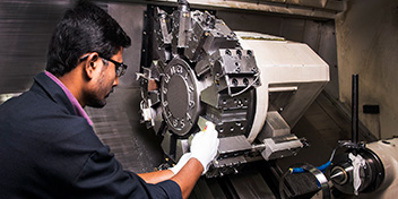Engineering can take you anywhere in the world, in any sector. An engineer or technician’s career could take almost any path.
Throughout this journey, professional registration is a framework that can help guide your study, training and professional development – and demonstrate the standard you’ve achieved.
Our Guide to Professional Registration is updated annually and can help everyone from school leavers, careers advisors and STEM ambassadors, through to employers and HR professionals, to navigate the organisations and resources available to support and develop engineering talent.
Professional registration is an internationally recognised standard that demonstrates engineering competence, gained through knowledge and on-the-job experience, to colleagues, employers and clients. A person can begin working towards professional registration at any time, and in any sector or discipline.
Whether you’re trying to choose the right apprenticeship or university course, applying for a promotion or a new job, or taking on your next big project: professional registration can support your career goals, demonstrating your competence and commitment to ethics and continual improvement.
What to do next?
Your first step to professional registration is to join a Licensed Professional Engineering Institution (PEI). For students, membership is low cost or even free. There are over 40 of these engineering bodies, each with their own specialisms, reflecting the breadth of the 18% of the UK workforce working in engineering jobs.
To help guide you through the process, and pick the professional body that’s right for you, the Engineering Council produces the Guide to Professional Registration, which covers:
- How the different engineering organisations work together
- What professional registration is
- Information about each professional registration title
- Benefits for registrants
- Benefits for employers
- Benefits for society
- How to become professionally registered
- Profiles of all Licensed PEIs, including:
- Their specialisms and missions
- What professional titles they offer
- Contact details
The Engineering Council will do our best to keep this publication up to date as we are made aware of changes, but we cannot be held responsible for incorrect data. It is always advisable to check the primary source of information before acting upon it.

Chartered Engineer (CEng) ›
Becoming a Chartered Engineer is obtaining the highest level of professional registration in your career. Find out more how you can achieve this here.

Incorporated Engineer (IEng) ›
Incorporated Engineers maintain and manage applications of current and developing technology. Click here to find out more.

Engineering Technician (EngTech) ›
Engineering Technicians (EngTech) apply proven techniques and procedures to the solution of practical engineering problems.

Information and Communications Technology Technician (ICTTech) ›
Professionally registered ICTTechs work in a variety of environments and invaluable to a workforce. Find out more here.

Search for your institution ›
Find the right institution for you and learn about your membership options.

Search for your course ›
Search our database if your course opens up the start of your exciting journey to professional registration.





